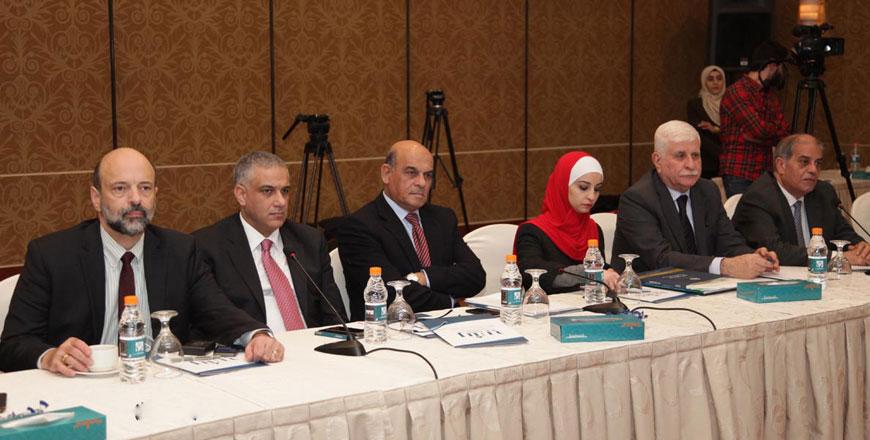You are here
Jordan progresses in global anti-graft index
By Dana Al Emam - Jan 27,2016 - Last updated at Jan 27,2016
AMMAN — Jordan’s performance in Transparency International’s 2015 Corruption Perceptions Index has registered an improvement compared to last year.
Jordan ranked 45 among 168 countries in the index, which measures the perceived levels of public sector corruption, scoring 53 out of 100, along with Mauritius and Namibia, according to the index released Wednesday.
Last year, the Kingdom ranked 55 among 175 countries in the index, scoring 49 out of 100.
Denmark ranked first with a score of 91, followed by Finland (90) and Sweden (89), while North Korea and Somalia were at the bottom of the list, scoring eight out of 100.
The Kingdom’s score exceeded the average regional score of 39 out of 100, which fell four points below the global average score of 43 out of 100.
In the Cabinet meeting headed by Prime Minister Abdullah Ensour on Wednesday, Public Sector Development Minister Khleef Al Khawaldeh presented Jordan’s performance in the global index.
He said Jordan’s performance is “good” when compared to the 168 countries included in the index, as the evaluation of anti-corruption efforts in the Kingdom are better than 68 per cent of the countries surveyed.
Meanwhile, he highlighted Jordan’s potential to achieve further progress in the index over the upcoming few years in light of “continuous and consistent” efforts, according to a statement sent to The Jordan Times.
The minister attributed Jordan’s four-point-progress over last year’s score to the collective efforts aiming at enhancing transparency, integrity and accountability in public agencies, through the adoption of several programmes and initiatives.
He commended the role of the Royal committee to follow up on the implementation of the National Integrity Charter in improving Jordan’s performance in the index.
“Despite the significance of global indices, the greatest aim of the national anti-corruption efforts is improving the efficiency and the effectiveness of the state’s institutions in a matter that reflects positively on the services provided equally to citizens and investors and enhances development,” he said.
On a regional scale, Jordan ranked fourth after Qatar, the United Arab Emirates and Israel, while Sudan and Somalia ranked the lowest in the region.
The report cited political conflicts in a number of countries in the region as a contributing factor to a decline in efforts to strengthen institutions and enhance anti-corruption efforts.
“As many states may feel confronted by existential threats, it is more important than ever to make combating corruption a top priority,” the report said.
Meanwhile it commended a “slight” improvement in the performance of Jordan, Kuwait and Saudi Arabia.
The report placed emphasis on the need for anti-corruption efforts and development to be interlinked, especially with the inclusion of fighting corruption among the new Sustainable Development Goals.
“Citizens urgently need their governments to move beyond conceptualisation to actually taking long-term action,” according to the report, which highlighted a need to further engage civil society in the fight against corruption.
Related Articles
AMMAN — Jordan should seize the opportunity of its improved performance in the Corruption Perceptions Index to push for applying better anti
Jordan’s ranking and score in Transparency International’s 2014 Corruption Perceptions Index has recorded an improvement compared to last year.
Senior government officials on Sunday held a meeting with representatives from Transparency International as authorities are seeking to achieve a better ranking in future editions of the Corruption Perceptions Index (CPI).
















